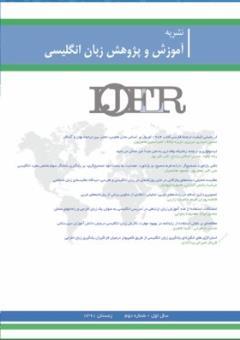Nomadology in Cormac McCarthy's The Crossing and The Road: The Deleuzian Geocritical Study
Subject Areas :
Zahra Barfi
1
![]() ,
Fatemeh Azizmohammadi
2
*
,
Fatemeh Azizmohammadi
2
*
![]() ,
Mohammadreza Noorollahi
3
,
Mohammadreza Noorollahi
3
![]() ,
Saeed Yazdani
4
,
Saeed Yazdani
4
![]()
1 - Department of English Language and Literature, Arak Branch, Islamic Azad University, Arak, Iran
2 - Department of English Language and Literature, Arak Branch, Islamic Azad University, Arak, Iran
3 - Department of English Language and Literature, Qom Branch, Islamic Azad University, Qom, Iran
4 - Department of English Language and literature, Bushehr Branch, Islamic Azad University, Bushehr, Iran
Keywords: Cormac McCarthy, The Crossing, the Road, Deleuze Geocriticism, Nomadology,
Abstract :
In the present essay, the researchers aim at studying two famous novels "The Crossing" and "The Road" in the light of Deleuzian geocritical concepts such as: nomad, rhizome, smooth space, and war machine. Studying space and place in American literature is a new trend. Space and landscape, considered as smooth space and striated space in Deleuze and Guattari's nomadology, are significantly highlighted in American literature. By drawing on Deleuze and Guattari's view of rhizome, which does not follow any plans or structures, the novel can be regarded as a rhizomatic structure in which the characters with nomadic existence move freely in a smooth space- a space without an explicit beginning and a clear destination. Portraying American space and landscape is a dominant theme in Cormac McCarthy's novels, including "The Crossing" and "The Road", in which the characters move from a rooted life to a nomadic life. Through examining these two novels, this paper is going to investigate the movement of nomadic characters in the smooth space of the postmodern world. Moreover, through exploring the relationship between literature, space, and identity, drawing on the philosophical ideas of Deleuz and Guatari, this paper is going to expose in what extent the representation of spaces in literature can reflect and shape cultural and national identities.
Deleuze, G. & F. Guattari (1988). A thousand plateaus: Capitalism and schizophrenia, Bloomsbury Publishing.
Estes, A. K. (2013). Cormac McCarthy and the writing of American spaces, Rodopi
Gwinner, D. (2011). "‘Everything uncoupled from its shoring’: Quandaries of Epistemology and
Ethics in The Road." Cormac McCarthy: 137-156.
Keller Estes, A. (2013). Cormac McCarthy and the Writing of American Spaces. Ehland, Christoph et al. Newyork: NY.
Lindley, E. (2011). "Immortality Through Tale in" The Crossing"." Global Tides 5(1): 1.
Lasvill-Andersen, T. K. (2018). Cormac McCarthyś Nomads" The significance of the nomad as a subversive figure in Blood Meridian, The Border Trilogy, No Country for Old Men, and The Road.
Luce, D. C. (1999): “The Road and the Matrix: The World as Tale in The Crossing.” Perspectives on Cormac McCarthy: 195-220, University Press of Mississippi. Jackson.
McCarthy, C. (1994). The Crossing, Vintage.
McCarthy, C. (2006). The Road, Vintage.
Tally Jr, R. (2012). Spatiality, Routledge.

